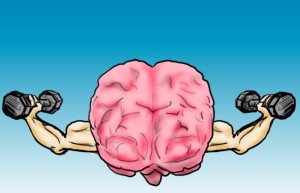 I confess, I have recently fallen off the wagon of fiction. I published a brief (1000 word) nonfiction article on the mysteries of visual perception to NFReads.com. The site publishes short nonfiction articles by authors who hope to thereby publicize their nonfiction books. The site is advertised to book buyers, so the whole thing is a kind of marketing ploy, but WTH, some of the articles are interesting in their own right. The marketing slogan is “Learn Something New Every Week.”
I confess, I have recently fallen off the wagon of fiction. I published a brief (1000 word) nonfiction article on the mysteries of visual perception to NFReads.com. The site publishes short nonfiction articles by authors who hope to thereby publicize their nonfiction books. The site is advertised to book buyers, so the whole thing is a kind of marketing ploy, but WTH, some of the articles are interesting in their own right. The marketing slogan is “Learn Something New Every Week.”
I decided to do it because my nonfiction books, four of them, are languishing; virtually derelict. The one that was commercially published is so old (2005) it has fallen into the “rare book” category and now costs over a hundred dollars in print version (which is ridiculous, given POD technology these days), but it’s still available as an ebook. The other three, still relatively fresh, were self-published ebooks, originally at $4.99, now a more realistic but very humbling $0.99. I’m lucky to sell one a month these days. I’d give them away but that’s not possible on Amazon.
But I still believe in these books. They were written from passion, with passion, and they’re still good. I should rewrite them. They’re far too dense. The reasoning in them is impeccable, but I now realize that most people cannot track arguments that are packed that tightly. These books need to be double their current length, with a lot more “air.” Not that they need redundant padding. I hate that. I like high information density. But they need more examples and more spelling out of assumptions and implications. And better layout with more whitespace.
So anyway, I wrote this short article on vision, called “Why Do We See Anything?” (www.nfreads.com/article/why-do-we-see-anything/ ) to make the point that there are very deep, fundamental mysteries of psychology lurking just below the surface of everyday experience. I used that point to highlight my book, Scientific Introspection: A Method for Investigating the Mind. (bitl.y/scientific-introspection). The book is a methodological critique of standard science and presentation of an alternative, introspection-based empiricism. Does that sound interesting? No, it does not. I know that. So I tried instead to write something that connected a little more directly to everyday interests.
Bait and switch? Maybe. What else can I do? Nobody wants to read a book on philosophy of science. Well, I do, but no normal person does. That’s why my nonfiction doesn’t sell. I never did find a good way to connect the topics of interest to me with topics that would interest ordinary people. Actually, that’s the main reason I gave up on nonfiction and turned to fiction.
My experience writing the nonfiction article was interesting. I was excited to be back in the swirling cauldron of ideas that I find so exciting, but writing nonfiction uses intellectual muscles I haven’t used in years. It was a pleasingly familiar experience, but also strangely alien. It was very difficult, even painful, for me to learn how to write fiction with the right side of my brain and I fear I could easily backslide if I continue to write nonfiction. But it was so much fun. I’m torn.

May I ask you if after writing this articles that you had others who became interested in your books and they started buying them. Maybe you could tell me more about your experience with nfreads. Thank you so much Charlotte Ann
Hi, Charlotte Ann.
I did see a significant spike in page hits for my nonfiction books, so there definitely was some interest. Sales? Not so much. Maybe one or two. If you have more compelling books than mine, you might do better.
But I did receive several comments from NFReaders like you, some via email, and had some thoughtful exchanges about the ideas in my article.
It would be nice if NFReads were to accommodate reader comments, but then it would become a blog rather than a marketing vehicle I suppose.
I’ll probably write another NFReads article. It’s good exercise for me. The only downside is that they own your article. I dislike providing free content, which is why I don’t review books on Amazon. It’s hard enough to write a cogent essay without then giving it away. But such is life.
Bill